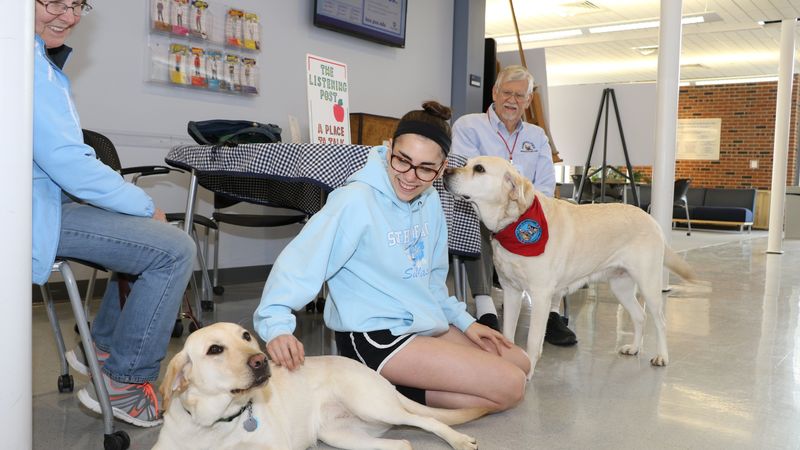Paws to listen
Sally and Mattie aren’t who you’d typically find on a college campus, but they’re welcome visitors – and good listeners – at Penn State Hazleton.
The Labrador retrievers come to the campus every few weeks with their handlers, retired biology professor Dave Orbin and his wife, Kathy. The Orbins raise puppies to be guide dogs for the blind through The Seeing Eye.


